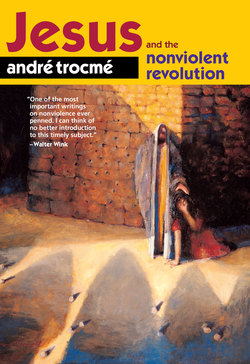Jesus and the Nonviolent Revolution

Реклама. ООО «ЛитРес», ИНН: 7719571260.
Оглавление
André Trocmé. Jesus and the Nonviolent Revolution
Отрывок из книги
ACCLAIM FOR
Jesus and the Nonviolent Revolution
.....
Finally, Jesus uses the same word during the Last Supper, where the Jubilee is announced in eschatological terms: “This is my blood of the covenant which is poured out for many for the forgiveness (aphesis) of sins. I tell you, I shall not drink of this fruit of the vine from now on until that day when I drink it anew with you in my Father’s kingdom” (Matt. 26:28–29). The supreme Sabbath celebrated in the kingdom of God is thus announced by a terrestrial Jubilee that foreshadows it.
In addition to the above language of freedom and release there is the notion of restoration. The word “jubilee” itself (yobel, in Hebrew) does not seem to have had any particular meaning. The yobel was probably the ram’s horn used in the land every forty-nine years on the Day of Atonement, the tenth day of the seventh month, to proclaim the beginning of the year of Jubilee. Later, it became associated with the Latin word jubilum (from jubilare, to rejoice, to exult), but this was merely a verbal coincidence. Philo of Alexandria, a contemporary of Jesus, rightly designated the Jubilee by the term apokatastasis. This word means to reestablish something or somebody to his previous state, a restoration or restitution of prisoners or hostages, for example. This is a subject to which Philo devotes several chapters throughout his works (cf. his Decalogue) and it squares beautifully with the basic meaning of the Jubilee. The very purpose of the Jubilee was to “reestablish” the tribes of Israel as they were at the time they entered Canaan.
.....